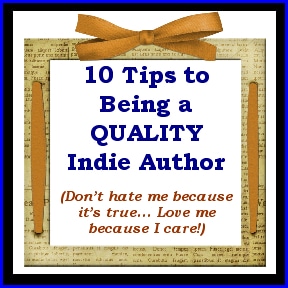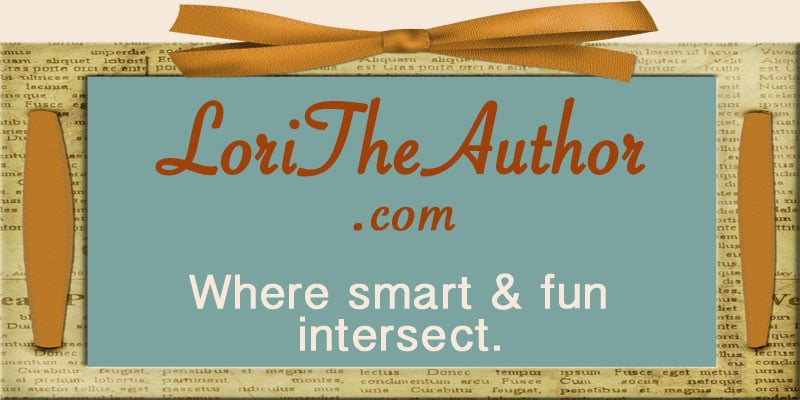 Quick! What’s the first thing you feel when you hear “indie authors?” Be honest! Chances are that you, like most people, experience some reservation, even though you yourself may be either an independent author or a huge supporter.
Quick! What’s the first thing you feel when you hear “indie authors?” Be honest! Chances are that you, like most people, experience some reservation, even though you yourself may be either an independent author or a huge supporter.
Why do you think this is? In my opinion, it’s because although “self-publishing” has come a long way, there is still a significant amount of quality development needed.
My first book, “Everything You Need to Know About House Training Puppies and Adult Dogs,” came out in 2005 and continues to be a top seller in its genre. If you’ll recall, 2005 was before self-publishing was a widely accepted practice. This drove me to put together the book, its cover, and its marketing in such a way that it was indiscernible from “normal” books.
In March 2012, my novel, “Momnesia” was released, and I handled it with the same level of professionalism. However, this time it was buried in the masses of other indie books. “Yay,” I originally thought. “Other professionals to network with!”
Turns out, um, not so much. In fact, very rarely. Don’t get me wrong: I have come across several indie authors whose work I respect immensely and I love reading their books and networking together. Unfortunately, this is not the case the majority of the time.
You can think me a snob but the truth is that what readers care about is reading a good book. Likewise, bookstores and libraries want to be supportive of independent authors but are often leery because they just don’t have time to weed through it all.
I’m not perfect but I do my best. My books have been pretty successful but I probably make less money than some because I invest in things like professional editing and top quality cover art. I am also more than an author. I’m a reader, a person who cares about the industry as a whole, and a business consultant. So, drawing on all of those different sides of me I bring you:
10 Tips to Being a Quality Indie Author
- Readers are usually word nerds, just like you and I. When you read a book that contains spelling and grammatical errors, chances are that you don’t think, “Oh my. The poor dear, they’re doing their best. Let me recommend this to all my friends.” Neither will your readers.
- Librarians and bookstore buyers are even more particular.
- You may be fabulous but you’re not smarter than everyone. There are going to be errors that you cannot see yourself, otherwise (obviously) they wouldn’t be in there! Trust me, if Jodi Picoult still needs an editor, so do I… and you!
- You should not know the name of your editor’s dog before working with them. They are not your mother, sister-in-law, or college roommate. Not even if they work as an editor. You need someone completely impartial, and people who love you do not qualify.
- Being an author is not a get-rich-quick scheme. If you’re releasing a book every couple of months, it is most likely that they do not meet professional standards. Take the time to do it right.
- Compare your cover art to a row of mainstream-published books. Can you honestly say that yours is just as high quality? There should be no conscious or subconscious difference when a person looks at your book. Try it.
- Your book/s should not be “e-book only.” For many readers, and certainly industry professionals, the non-existence of a physical book implies laziness, lack of editing, or both. With today’s options for POD, there is no reason for this.
- Formatting should be pristine.
- Marketing materials should be top quality. Landing a book signing and then giving out bookmarks made on your home printer is not okay. Your website, Facebook, and printed materials should have consistent branding and emit an air of professionalism.
- Be careful with networking. When you promote another author’s work, your reputation becomes attached. Make sure you’ve read their book and know it is of professional quality before putting your own name behind it.
I hope you’ve enjoyed these tips and I look forward to your comments. One of my goals is to help develop the industry so that the above issues will eventually be eliminated.
If you enjoyed this, please add your comment and/or use the convenient sharing buttons below. Thanks!






10 Responses
LoriTheAuthor
Thanks everyone! Suzanne… I look forward to getting to know you more!
Mark
This is a great piece. Lots of authors could use this pep talk/scolding. Of course, there’s lots of Indies out there doing it the right way.
I like this article so much I would love to syndicate it on my blog to spread the word. If you’re interested, send me an email. I’ll promote your book as well as anything else you would like me to include, such as an author bio, pic, links, etc …
msl_007@live.com
Popular Author Leaves Industry, Waiting for it to Mature – Lori Verni-Fogarsi (LoriTheAuthor)
[…] eyes of an editor or proofreader. It seems that–to many (although certainly not all)–being an indie author is seen as the next get-rich-quick […]